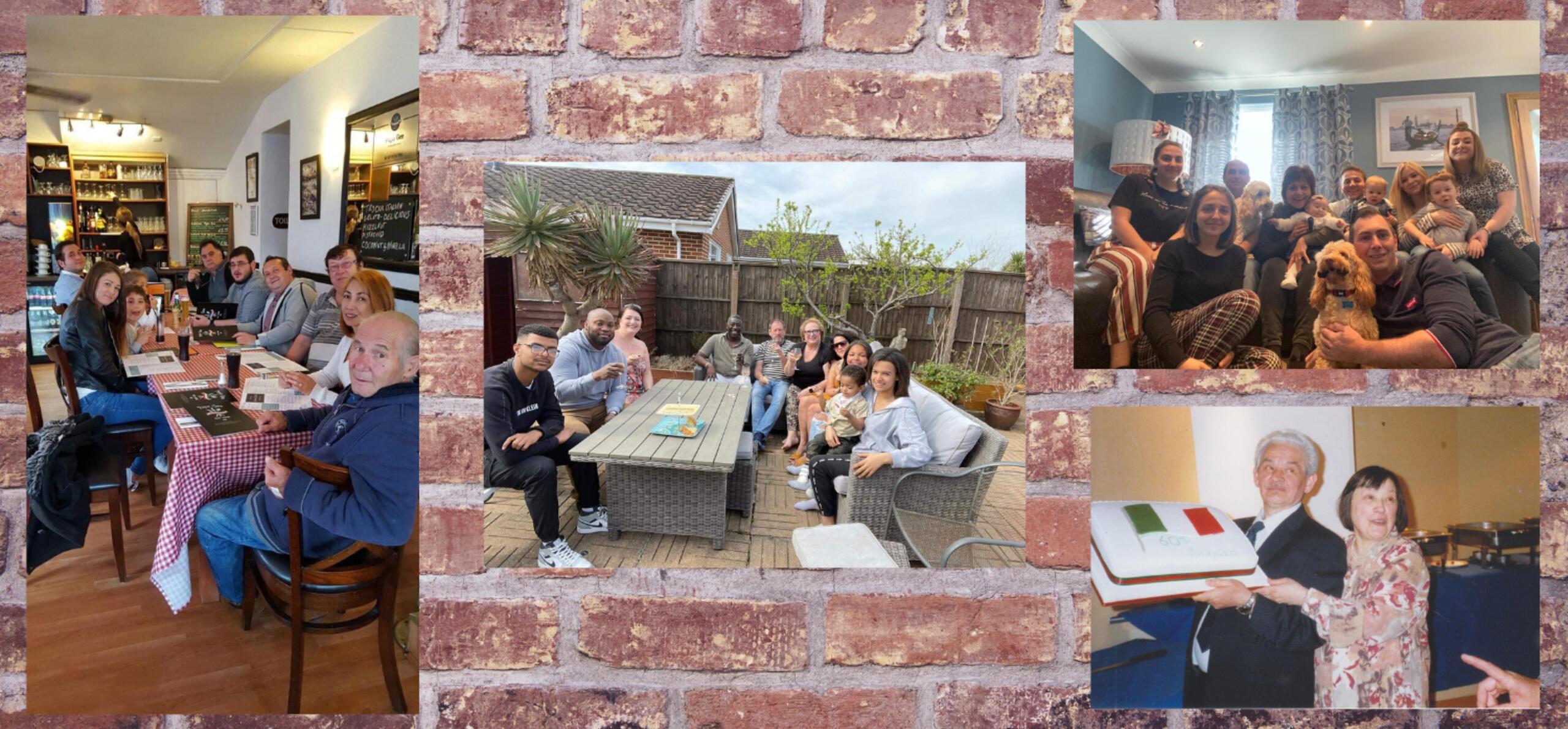Italians are now deeply integrated in Reading’s local economy and social life. However, their integration and the acceptance of Italian culture has been a gradual process. Italian migrants were not always welcome in Britain.
Immediately after the Second World War, there was a lot of anti-Italian feeling in Reading. Newspapers reminded locals that people from the town had been prisoners of war in Italian camps.
Italians living in Reading during this time experienced political and ideological discrimination, rather than racial. They were considered fascists amongst Reading’s local community.
Prejudice and stereotyping
Stereotypes like these isolated and separated Italians from the town’s non-Italian community. This made it very difficult for them to live in Reading.
Racial tension became more widespread during the 1970s and 1980s with the rise of the Skinheads and their fascist and anti-immigrant prejudices. They believed in white supremacy and divided society into who they deemed as ‘white’ and ‘other’. Surprisingly, Italians were not viewed as ‘white’ because they had dark hair and dark skin. They were caught in-between what the Skinheads considered ‘white’ and ‘other’ and were often subjected to violent attacks. In the 1940s and 1950s, Italian migrants were viewed as fascists. Later they were targeted by fascists because they were not considered ‘white’ enough.
We were walking home, reached the station and saw some Skinheads. They started chasing us with metal bars and chains. They caught my friend and hit him with the bar.
- Rocco
This discrimination made it very difficult for Italians to feel settled in the town. Some migrants felt just as isolated from their local community when going back home to Italy to visit family and friends.
Many historians of other migrant groups have described Italian migrants as ‘model immigrants’ because of their popular image as hardworking and well-behaved individuals. However, some Italians living in Reading were caught stealing. These articles often highlighted Italians migrants' foreign identities and stoked tensions within the community.
Italians formed better relations with other migrants. They bonded with Irish, Polish and Ukrainian immigrants over shared struggles with learning English, the challenges of adapting to industrial ways of working, and the need to adjust to British culture.
Gradual acceptance
In the 1960s and 1970s, the growing popularity of Italian culture evidenced in the attraction of Italian fashion, food and cinema, legitimised the migrants’ Italian identity while making it easier for Italians to feel accepted in Reading. Italian social events and the emergence of restaurants selling popular Italian dishes encouraged integration.
Today, Italians are deeply integrated within the local community, holding a distinct Italian-English identity. They feel at home in Reading and have adjusted to British culture, but their religion, food choices and Italian language connect them with their home towns and heritage.
England is my homeland and I always count my blessings for growing up in a country like this, but Italy is my motherland, it is always where I am drawn to.
- Paolo
Family is another factor connecting Reading’s Italian community to its Italian heritage. However, many British-born Italians feel that by growing up in England, they have missed out on the opportunity to get to know their family abroad. This feeling usually surfaces after visiting relatives in Italy and having to say goodbye to them before returning to England.
Others define themselves as British but still listen to Italian music, drink Italian coffee and support the Italian national football team. These are deliberate choices which retain a link, consciously or otherwise, to their cultural heritage.
What I listen to reminds me of my younger years and going back to Italy, so there is a bit of nostalgia there.
- Ciriaco
Despite their hybrid identity, Reading’s Italian migrants are grateful for the opportunities the town has provided them and their extended families. Reading is now their home. They feel welcome in the town and enjoy its diversity. They are thankful for Reading’s excellent healthcare, education and connections to London. Across all the interviews undertaken for this exhibition, migrants only seem to miss the food and warm weather of their home provinces.
I only miss a little bit the sunshine, the good weather.
- Pietro
Reading's Little Italy
As Italians have adjusted to Reading, the town has adapted to them. The many Italian restaurants, delis, hair salons and tailors found around the town today have impacted local culture. They have introduced Reading to new foods, styles, fashions, and ideas of beauty and care for the body which are distinct to the Italian way of life.
All of these combine to create the success that Italian migrants have had in settling in Reading. Over the course of many years, they have made Reading special and transformed it into a more modern and cosmopolitan place.
Visit the exhibition
Reading’s ‘Little Italy’: Stories of Migration and Belonging is a free exhibition at Reading Museum which is open to the public from 16 August 2022 until 17 December 2022. This work started as the MA Public History final project of Lydia Ackrell. However, the wealth of material and history which this project has unearthed has highlighted that there is so much more of Reading’s Italian history out there which is still yet to be discovered and documented.
As older generations of Italians pass on and newer ones are born into the community, it is important that the memories and stories of those before us are preserved. If you are of Italian descent and are connected to Reading in some way, we would love to hear from you! Share your story with us to help enrich our archives and understanding of Reading’s Italian community.
Contact Lydia and share your story at readingslittleitaly@outlook.com. Alternatively, join in and add to the project via the History Pin page.
Lydia Ackrell
This exhibition has been produced by local Reading resident Lydia Ackrell.
Lydia is a MA Public History student at Royal Holloway, University of London. Reading’s ‘Little Italy’: Stories of Migration and Belonging is the result of Lydia’s Masters degree final project and is inspired by her Italian heritage (she is British-Italian). Lydia’s grandparents grew up on a farm in Torre Le Nocelle, Southern Italy. Their youth was characterised by poverty and agricultural labour. Lydia grew up knowing, but not fully appreciating that they had left their homes in search for a better life in Reading. This exhibition began as a personal exploration of her family’s past but blossomed into something more comprehensive: a chronicle of Reading’s Italian community, their experiences, evolution, and relationship with their shared heritage.
Created through a programme of oral history interviews and independent research, Lydia’s exhibition gives voice to previously unheard stories, even within her own family. It is an emotive body of work through which Reading’s Italian community (and others) can explore and reflect on their lives and, for later generations, those of their parents and grandparents.
In addition to the pull of her Italian heritage, Lydia retains a keen interest in British Royal history, and 1950s crooner music. She collects mugs (alongside oral histories) and nurtures a growing collection of cacti.





